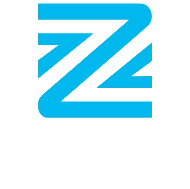Identification
Find A Test

The European Pharmacopoeia presents a good answer to this question: “The tests given in the Identification section are not designed to give a full confirmation of the chemical structure or composition of the product; they are intended to give confirmation, with an acceptable degree of assurance that the article conforms to the description on the label”.
Although, especially in the case of new drugs, drug research is the first step followed by production and quality control of the drug, in this review, the role of identification in drug quality control is dealt with first, because this issue is more important when drugs already exist, and, in drug research, structure elucidation is more important than identification.
The true identification of a drug may be accomplished in a number of ways, namely: determination of physical constants, chromatographic tests and finally the chemical tests. The physical constants essentially include the melting point, boiling point, refractive index, weight per millilitre, specific optical rotation, light absorption, viscosity, specific surface area, swelling power, infra-red absorption, and the like.
The chromatographic tests include specific spot-tests by thin-layer chromatography (TLC) of pure drug or its presence in a multi-component system. However, the most specific and reliable are the chemical tests which may be categorized separately under tests for inorganic substances and organic substances. The former may be carried out by well-defined general quantitative inorganic analysis and the latter by specific reactions of one or more of the functional moieties present in a drug molecule.
Identification of bulk drugs
The monographs of bulk drugs in pharmacopoeias and in other main documents (e.g., Drug Master Files) usually begin with the identification test(s) because simple but reliable identification is of great importance in avoiding the danger of drugs.
Despite the increase in the importance of macromolecules in drug therapy, the majority of the drugs used at present are small molecules. The structure elucidation and the identification of intermediates and end products are described in the documents submitted to drug authorities.
Counterfeit products
Detecting and proving the adulteration of drugs are among the most serious problems for pharmaceutical analysis. Analytical chemists play a very important role in the fight against drug adulteration: identification of the constituents of the adulterated drugs is one of the most important tasks.
FTIR: Fourier transform infrared (FTIR) analysis is a popular analytical tool for material screening. The technique works because each different type of molecular bond in a molecule vibrates differently, and there is often a set of molecular vibrations that form a characteristic “fingerprint.” When measuring a molecular substance, it is possible to identify an organic substance by comparing its FTIR spectrum to a library. This method is particularly useful as a first step in the identification of an unknown residue as well as for the assessment of material changes after a process modification.
NVR: Non-volatile residue (NVR) testing is performed to show how much non-volatile material is present in an extract. This test quantifies any substances in the extract which do not volatilize at or above a temperature of 105°C and is used to determine the levels of impurity in a solvent and detect contamination
Testing Locations
Baddi, Himachal Pradesh
Contact Us
If you have additional questions about pharmaceutical testing or would like to consult with experts at Zexa Labs, just send us a request or call us at + 0179 545 6944.
Testing Options
Ask an expert for a specific consultation on your product. If you are ready to submit your samples for testing, fill out the Sample Submission Form.
